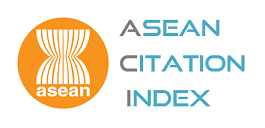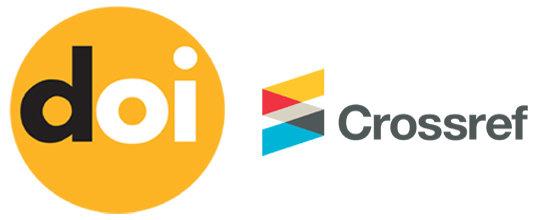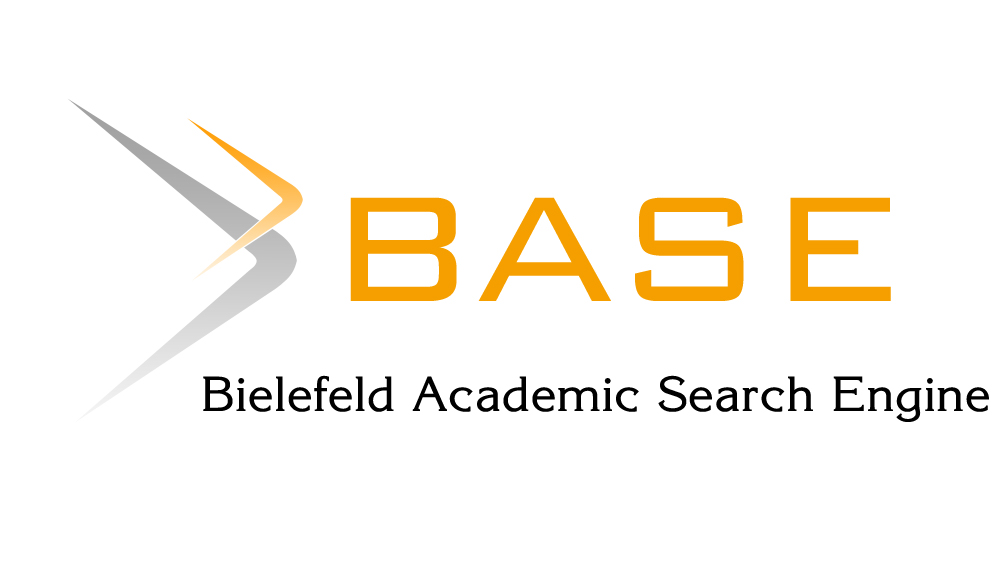PUBLICATION ETHICS
I. For the Journal
- Tra Vinh University Journal of Science (TVUJS) operates in accordance with the principles and purposes stated in the press license granted by the Ministry of Information and Communications (MIC) of the Socialist Republic of Vietnam; complies with the provisions on press and publishing activities under the Press Law of Vietnam..
- TVUJS is committed to upholding publication ethics in accordance with the guidelines and standards of the Committee on Publication Ethics (COPE), adhering to COPE’s Core Practices, Best Practice Guidelines for Journal Editors, and Guidelines on Good Publication Practices. The Journal also complies with the regulations on scientific, technological, and innovation activities under the Law on Science, Technology, and Innovation, as well as the provisions on intellectual property under the Intellectual Property Law of Vietnam.
- The Journal has the right to publish all articles in its publications. All the submitted manuscripts are thoroughly and fairly assessed based on the quality of content, avoiding racism, gender, workplace, academic degree, etc. TVUJS respects and complies with its independence in the editorial screening, reviewing, and publishing policies through TVUJS’s online peer-reviewing system to ensure transparency and confidentiality for all parties involved. TVUJS adheres to the independence policy in initial assessment, review, editing, and publication. The Journal’s policies are not influenced by any agreements with third parties or advertising sponsors.
- The Journal is committed to implementing and complying with the provisions of law and guiding documents related to the security of personal information. TVUJS undertakes the use of information provided by its users (authors, readers, editors, reviewers) for declared purposes. Information provided to the Journal shall not be disclosed to any other third party or be used outside its intended purpose unless it is required following the Law of Vietnam.
- TVUJS utilizes the iThenticate tool to review each submitted manuscript to ensure originality and reduce factors that lead to plagiarized work before proceeding to review its content. If the tool detects that the manuscript has a similarity index score that exceeds 25%, the Journal will reject the manuscript from being reviewed.
II. For Editors
Editors play a key role in upholding the academic integrity of TVUJS. Their primary responsibilities include making publication decisions, managing the peer-review process, protecting confidentiality, ensuring transparency and fairness, and disclosing conflicts of interest.
- Publication decision: Editors are independently responsible for deciding which manuscripts they send to the Editor-in-Chief for publication consideration. Editors must adhere to the policies of TVUJS as well as legal requirements. Editors are responsible for any arising issues that violate the integrity of the manuscript.
- Peer review process: Editors need to ensure that the peer review process is conducted fairly, objectively, and within the required timeframe. Each manuscript must be sent to at least two independent reviewers, and additional reviewers may be invited if required. Reviewer selection should be based on appropriate expertise and adhere to ethical principles to prevent misconduct.
- Confidentiality: Editors must strictly maintain the confidentiality of manuscripts and all information related to the peer-review process. Disclosure to third parties is only permitted with the approval of the Editor-in-Chief. Unpublished data or ideas contained in the manuscript may not be used for personal use without the author’s written consent.
- Transparency and fairness: Editors should consider fairness and objectivity to ensure that personal relationships or private interests do not affect manuscript assessment or reviewer selection. They are required to provide the Editor-in-Chief with accurate and complete updates/reports on the status of manuscripts.
- Conflict of interest declaration: Any potential conflicts of interest must be disclosed to the Journal before appointing an editor, and if any new conflicts arise, they must be disclosed to the Journal and Editor-in-Chief before proceeding with additional edits. Editors should not be involved in decisions about manuscripts they wrote that involve family members and colleagues, or relate to products or services in which the editor has an interest.
III. For Reviewers
Reviewers play an essential role in supporting the Editorial Board in making publication decisions and in enhancing the scientific quality of articles published in TVUJS.
- Sense of responsibility: Reviewers need to work responsibly to avoid superficiality and compromise with errors. They have the right to reject review requests when manuscripts are not appropriate for their level of expertise, do not follow a professional code of conduct, or have a personal relationship with the author.
- Objectivity: Reviewers must be fair, objective, and free from bias or influence by personal or financial interests while reviewing manuscripts. Manuscript assessments must be based solely on the quality of content and scientific value, disregarding discrimination based on gender, race, religion, or institutional affiliation. Comments and opinions from reviewers should be constructive, explicit, and appropriate.
- Confidentiality: Manuscripts sent by the Journal to reviewers must be considered as confidential documents. All information related to the manuscript, as well as any communication or discussion regarding it between the reviewer and the Editorial Board or between the reviewer and the author, must be kept strictly confidential. During the review process, reviewers may discuss with colleagues or engagein joint evaluation activities, but this should be discussed with the Editorial Board first to ensure compliance with confidentiality policies. Unpublished data or ideas contained within the manuscript may not be used for personal purposes without the author’s written consent.
- Regarding ethical issues: Reviewers must be vigilant about potential ethical issues in the manuscript, such as plagiarism, duplication of content, or insufficient data transparency. Any notable similarity with previously published work should be reported to the editor. Reviewers should also ensure that all previously published data, sources, and arguments are properly cited.
- Conflict of interest disclosure: Reviewers must ensure that they have no conflicts of interest with the author, sponsor, or other parties related to the manuscript. Any conflicts of interest arising during the review must be reported immediately to the Editorial Board.
IV. For Authors
- Manuscript originality: The manuscripts submitted to TVUJS must not be previously published or be currently considered for publication by other journals, scientific proceedings, or other publications (abstracts or in full text, in print or electronic version). The manuscript will not be allowed to be submitted anywhere else until a final decision from TUVJS has been made to reject the manuscript for publication.
- Compliance with legal and research safety standards:
- Regarding research related to chemicals, processes, and hazardous equipment: The Author must confirm that all experiments follow the procedures of the legal system of Vietnam and the instructions of relevant international organizations.
- Research involving humans or animals: Regarding research involving animals (not humans) as research subjects, the study must be conducted according to the guidelines, care procedures, and use of animals (not humans) in the laboratory. Regarding research involving humans, the study must follow the National Guidelines on Ethics in Biomedical Research issued by the Ministry of Health of Vietnam, and relevant laws of Vietnam and international conventions that Vietnam has recognized. If the study is granted exemption from ethical approval requirements, details of the exemption must be attached to the article. Written and verbal consent from all human participants should be received before proceeding with experimentation.Besides, privacy and personal confidentiality (personal information, photos, medical records, etc.) of research participants must be authorized by the participants to use and must be strictly protected. Information security solutions must be used to preserve participants' anonymity. These experiments must comply with declarations by appropriate ethics committees or organizations, including any relevant details.
- Academic respect and fairness: The content of articles should express the spirit of respect for colleagues, social responsibility, and nondiscrimination related to such factors as gender, race, ethnicity, religion, and other factors unrelated to scientific expertise.
- Confidentiality of Information: Authors are required to keep all documents, peer-review reports, and editorial materials provided by TVUJS confidential. Sensitive data, such as interview recordings, personal information, trade secrets, military information, or participants’ medical records, must be handled with care and must not be disclosed without proper legal authorization.
- Data access and retention: Authors may be asked to provide the research data related to their manuscript to support the peer-review process and verify the accuracy of the study’s results. The data must be accurate, well-documented, and provided to the Editorial Board within a reasonable timeframe.
- Originality and plagiarism: Authors must ensure that the content of the manuscript is their own work. Any content, data, figures, ideas, or speech of others used in the manuscript must be properly cited and clearly presented in the References section, in accordance with TVUJS’s citation and referencing guidelines.
Plagiarism is a serious concern for the Journal to maintain scientific ethical standards. Plagiarism could be in many forms, including:
- Copying a certain amount of other work without citing the source;
- Copying from too many works of other authors, even though sources are correctly cited, which weakens the originality of the work.
- Providing inaccurate information about the author or the source of information when citing.
- Rewriting works of other authors in one’s personal writing without proper acknowledgement or citations.
- Reusing important parts of previous academic works published by the author themself or co-authors without proper citation (self-plagiarism).
- Duplicating content from published sources beyond a 25% similarity rate, even when properly cited.
V. Violation handling
For Editors and Reviewers
If the Journal concludes that a manuscript violates the publication ethics policy, they may terminate the involvement with the individual and take further measures depending on the severity of the violation.
For Authors
After the editorial screening, if editors, authors, and co-authors discover any violation of ethical standards, intellectual property, conflicts of interest, or authorship contributions, it is required to inform the Journal immediately, accompanied by proof of the violation. They will consider concluding the withdrawal and cancellation of the manuscript, discontinuing other stages of the publication process, and notifying the corresponding author.
For violations that are not detected initially to ethical standards, intellectual property, conflicts of interest, authorship contributions, and other policies, the Journal will take these into consideration and take action according to the severity of the case. These include requesting a correction, withdrawing or retracting the manuscript, refusing to receive submissions from violated authors for 1–3 years, and implementing further actions under the prevailing laws of Vietnam.










